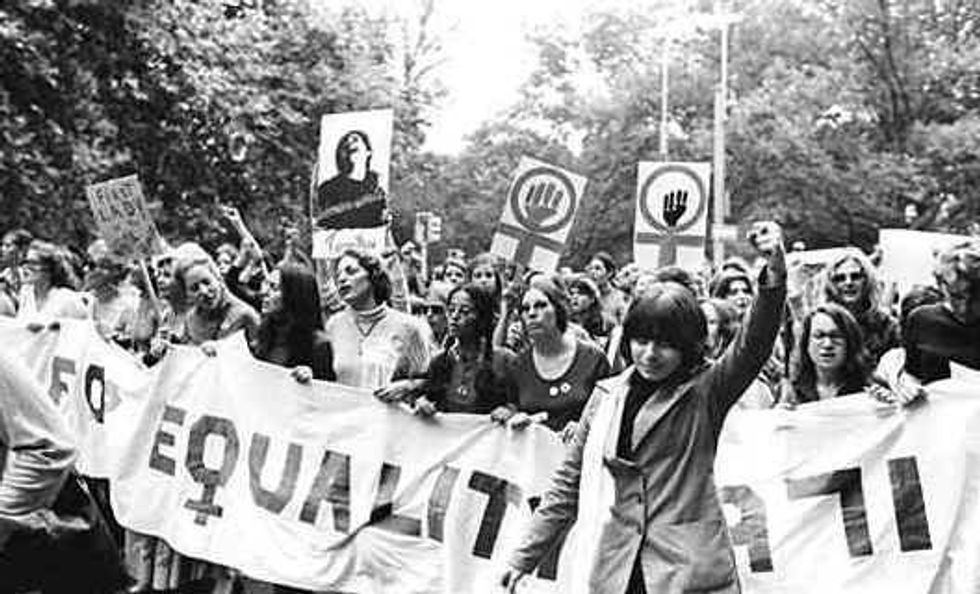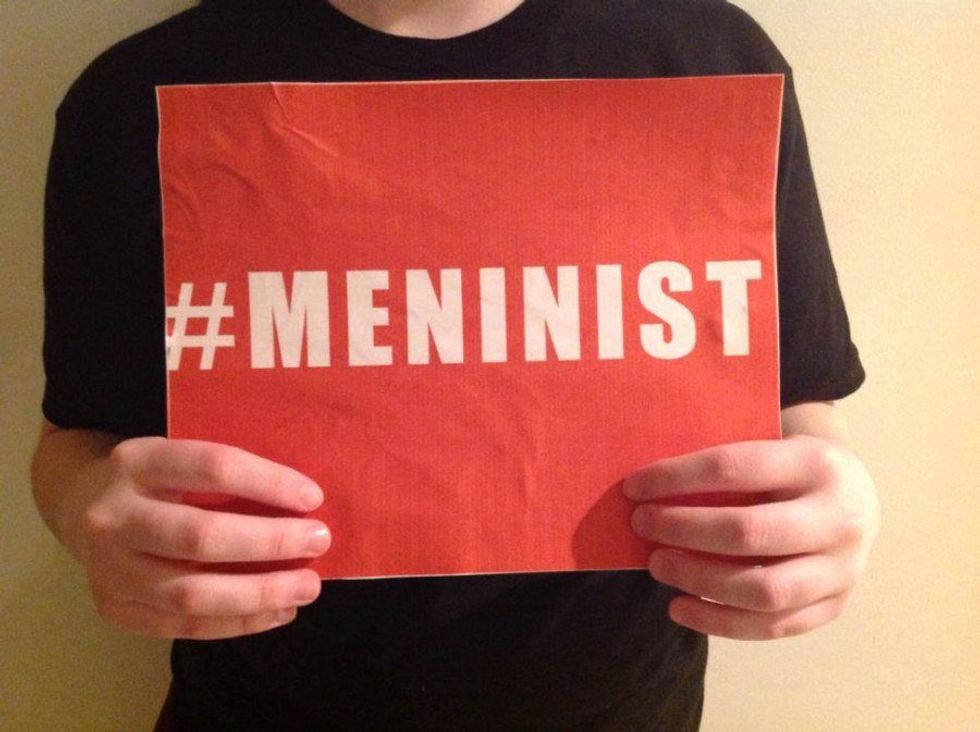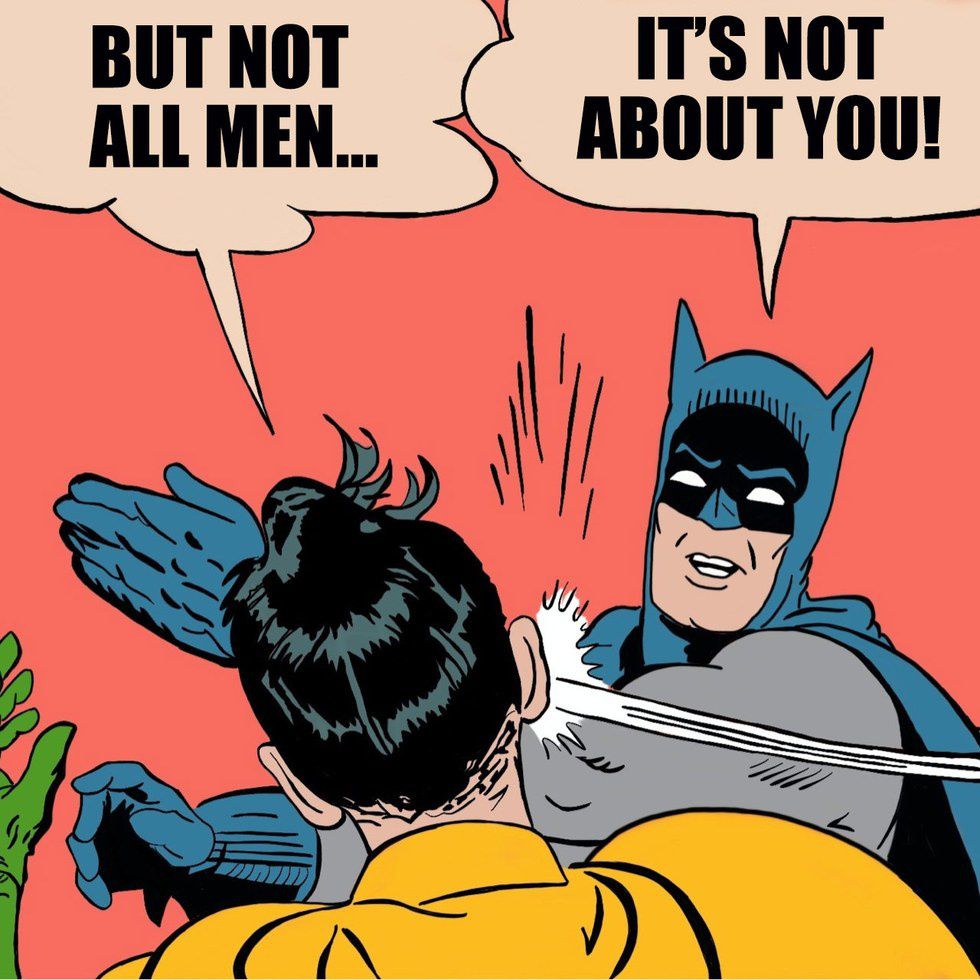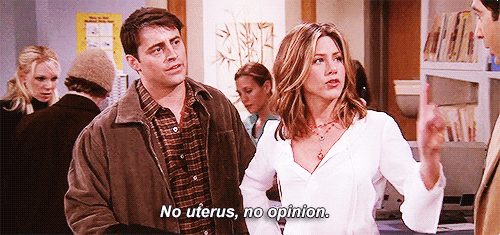March is Women’s History month! Woo!
Lately, I’ve been thinking a lot about what “makes” a woman. Is it sex? Gender? Socialization? Innate identification? Constructed ideologies?
Maybe it’s some of these things, or all of these things, or a complicated combination that varies on a person-to-person basis. Maybe it’s nothing I mentioned.
Simone de Beauvoir once said, “One is not born, but rather becomes, a woman.”
Though there is a lot of room for discomfort in that statement (i.e.: Is gender really a state one can "become"? Is it then fixed? Is gender even an identity or did we construct it to be? Do we need gender? Does "gender" benefit us as a society? As a species?), Beauvoir does make one point very clear: There is a sense of accomplishment that comes with being a woman.
This is primarily due to the overall history of women’s suffering and the feminist movement toward equality.

In other words, being a woman is difficult. It has been difficult for all of time. (There are obviously complexities within that. Some women have beautiful lives, and some women have tragic lives, but the fact is this: Women as a whole constitute a minority within our society, and they are unified in this oppression by a more “privileged” gender.)
Of course, feminism is not about men vs. women. It’s a way of thinking and elevating all groups affected by oppression, subjugation, and harassment. This includes heavy discussions about p.o.c, queer theory, education, war, class divisions, among other topics, in the hopes of bringing (more) justice into our realm of society.
But there is a time and place for every discussion to occur. As I’ve said, March is women’s history month, and right now I’m here to talk about something I personally encounter all the damn time when I bring up women’s issues specifically to male friends.
I’m sure you’re all familiar with the phrase: Not all men.
By now, the term itself has almost lost its “meaning” as we’ve come to make fun of it so much; but, horrifically enough, it’s still a go-to argument for so many men, even if it’s not represented in those exact words.
The problem with "not all men" is that the use of this phrase completely belittles women’s concerns over the given topics that are being addressed.
For instance, if a woman is terrified of men because—oh, I don’t know—one in six women are victims of attempted rape by men, and she decides to address these concerns by making the loose statement “I am afraid of men because they are violent,” then she should be able to. It is, in turn, really disgusting for someone to retaliate to this with “but not all men are violent.”
Saying this turns the attention away from the real issue at hand, and acts as a sort of defense for the man saying it rather than support for the woman admitting it. Again, it benefits the man (and his ego!) rather than the woman who is expressing legitimate concerns over legitimate issues.
This, of course, boils down to men being uncomfortable with being generalized. (It doesn’t feel so nice, does it?)
While generalizations, I agree, are harmful and often counterproductive in attempts to move forward toward justice, it is nonetheless really freakin' rude to turn the issue back onto what benefits you (as a man) while women are finally gaining the courage to speak up about being afraid, frustrated, or traumatized by things that men do to them.
Another way to look at this is by realizing that, while “not all men...” may be true, “yes all women” is also true. Consider the following:
- Not all men rape. But all women learn to carry pepper spray out with them when it’s late out because “you never know."
- Not all men catcall. But all women experience catcalling on the streets. And no, it’s not cute. It’s territorial, disgusting, and overwhelmingly invasive.
- Not all men use women for sex. But all women have had the experience of being manipulated or pressured in some way or another.
- Not all men treat women as inferior. But all women have had the experience of being treated as inferior—for their entire lives.
- Not all men are misogynistic. But all women feel the effects of misogyny. Less pay, less media rep, less political rep, less, less, less, less…
- Not all men sexualize/exploit the female body. But all women have been sexualized, exploited, and judged based on a culturally accumulated hetero-normative outlook on the female body.
- Not all men are awful (duh!!!). But all women have experienced a man being awful.
And so it goes…
Understanding that the phrase “not all men” is true, but still not appropriate to use in context, is a crucial first step in giving voice to the women who need it.
— and don’t even get me started on “but I’m a nice guy”.
If you’re such a nice guy, then shut up for just a second now and listen to the women you're surrounded by.
Strange as it may seem, not everything is about you.

























